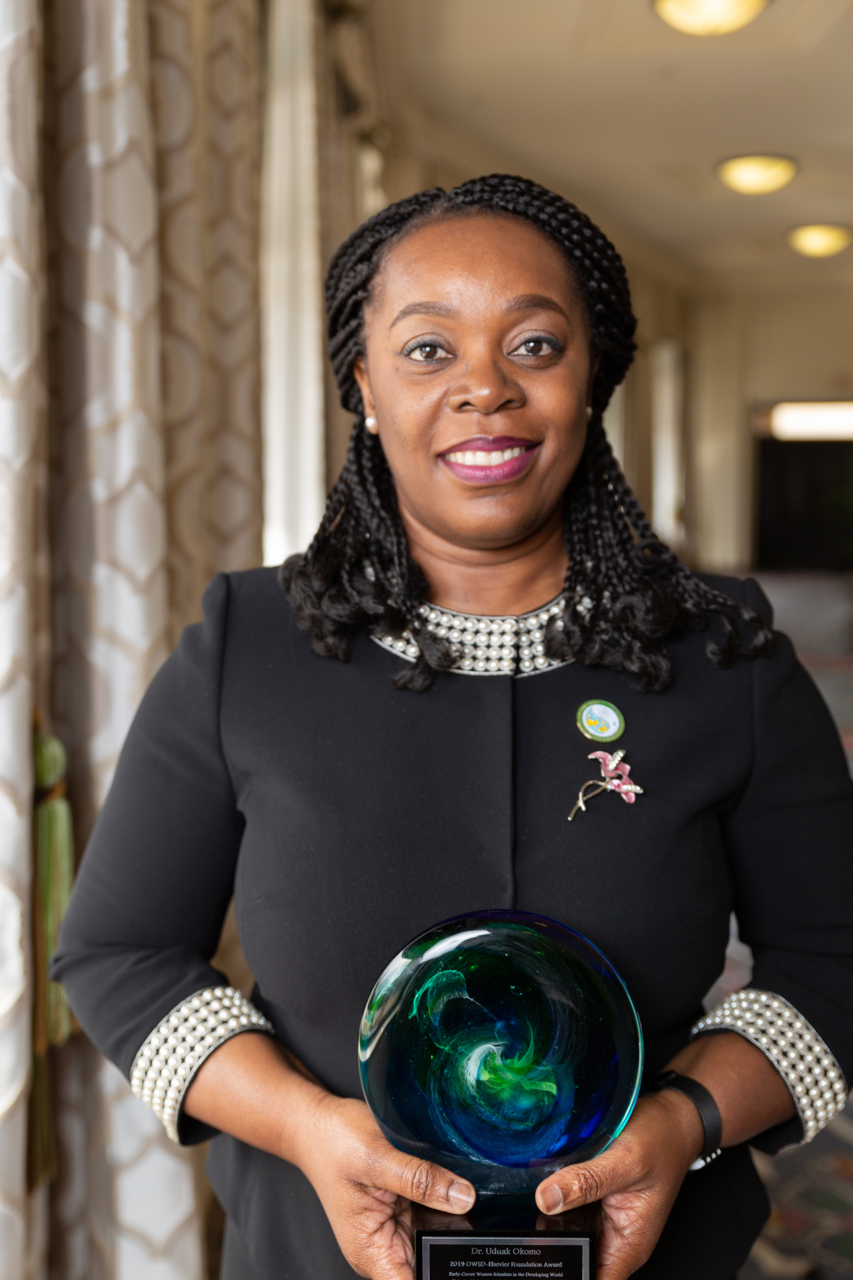'So many questions that need to be answered'

Paediatrician Uduak Okomo was recently honoured as a developing-country researcher in biological sciences
Tell us a little about your background and qualifications
I was born in Nigeria, where I completed my undergraduate medical training and postgraduate in paediatrics. I moved to the Gambia 15 years ago to pursue my interest in research, working at the Medical Research Council Unit The Gambia, which is now a Faculty of the London School of Hygiene & Tropical Medicine. During this time, I completed my Masters degree and PhD in Infectious Disease Epidemiology from the London School of Hygiene & Tropical Medicine.
My work centres on improving maternal and newborn health in developing countries. I conduct clinical work and research, while teaching Paediatrics at the School of Medicine & Allied Health Sciences, University of The Gambia.
What are you working on at the moment?
My research looks into preventable deaths from infections and antimicrobial resistance in newborn babies. Sub-Saharan Africa has the highest burden of newborn deaths globally, so at the heart of my work is the aim to reduce the burden of preventable newborn death in the region, particularly West and Central Africa.
My current research projects include using routine hospital data across health facilities in the Gambia to have a greater understanding of the number of stillbirths and newborn deaths, identifying infection transmission pathways for infection relating to newborns. The overarching aim is to identify the causes in order to implement contextually appropriate interventions.
Does research in Gambia involve any particular challenges (or advantages)?
The Medical Research Council Unit in The Gambia, where I have worked for the last 15 years, was established in 1947 and has an international reputation for ground-breaking research into some of the leading causes of morbidity and mortality in the tropics. Consequently, we have great infrastructure for facilitating research unlike any other institution in West Africa, which makes us quite unique. Notwithstanding, all research comes with its challenges, especially when working within a community. It’s important to ensure they understand the research you are undertaking and keep the channels of communication open – something you can’t always predict.
You were just honoured with a OWSD-Elsevier Foundation Award. What does that mean to you and why?
The award is an honour, it has changed my life. It is so important for visibility, for girls and women in Africa who aspire to become scientists to see it is an achievable goal. We can make progress and achieve as female scientists in Africa and so for this it is nice to be recognised.
What are you planning to do next?
I am driven my what I see in my practice as a paediatrician - there are so many questions that need to be answered. At the heart of my work is the desire to decrease the high burden of newborn death and mortality and get a greater understanding of the contextual factors that lead to these deaths notably health system factors. I am also passionate about supporting young scientists and the advancement of young girls in clinical research careers, and act as a mentor across the region. I am naturally quite reserved but my ethos in life is to speak up when I need to.
Any interesting facts, pastimes or hobbies that you want to tell us about?
In my spare time I love to read. I am a member of a book club and will read anything, from classics to bestsellers novels. I love to cook and regularly meet with friends to try out new recipes. I also love to listen to music and sing.






